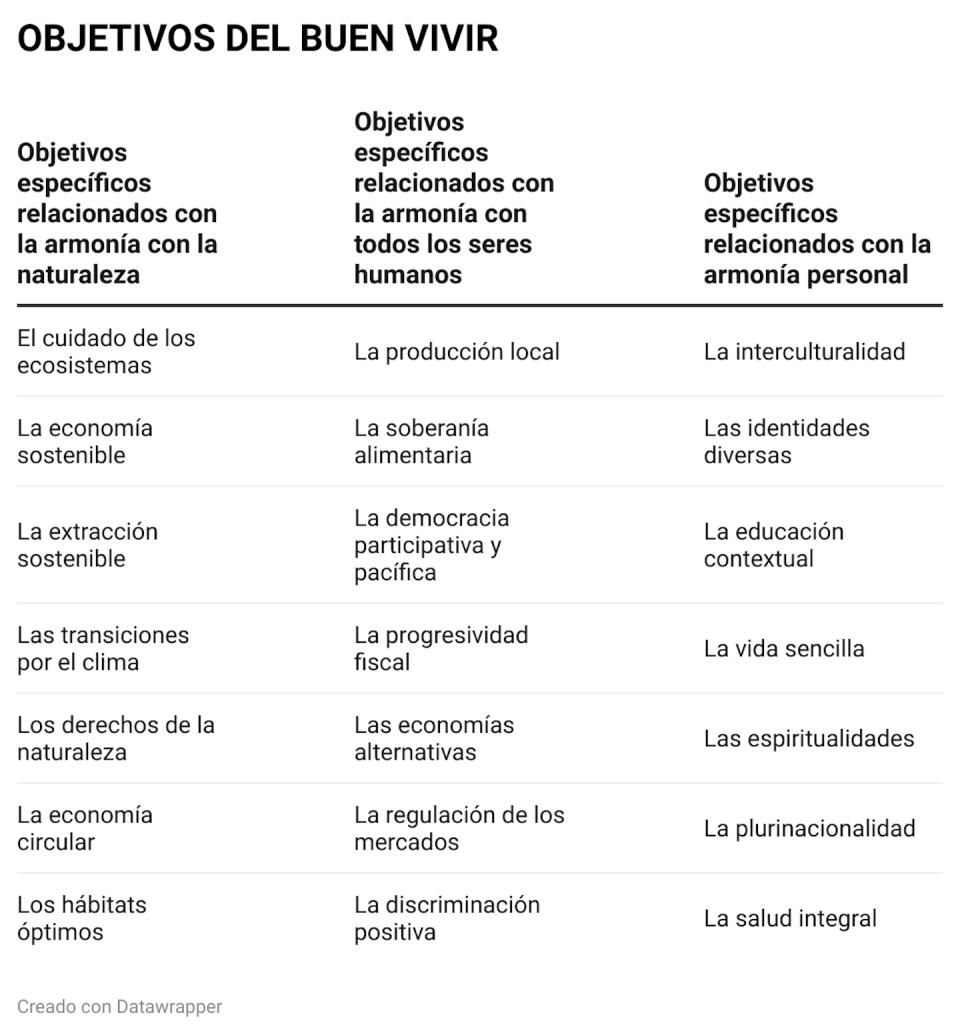The wellness paradigm of transmodern transdevelopment It pursues the satisfaction of the material and immaterial needs of people through a participatory process in which they decide, under the principles of environmental sustainability, social equity and personal satisfaction, what these needs are and what means should be used to satisfy them.
Under this paradigm – in which nature, society and the person occupy the center of people’s concerns – human beings feel part of different communities and also part of nature. As parts of a whole, they defend the harmonious coexistence between human beings and between them and nature.
beyond modernity
This welfare paradigm corresponds to a cultural paradigm or worldview called transmodernity and defined as a world view based on an intersubjective consensus that interprets all aspects of life from the emotionally intelligent combination of postulates based on spirituality, reason and imagination.
With this vision, what is pursued is the realization of the multiple expectations of people through their participation in consensual and socially and environmentally harmonious intercultural projects, aimed at building a happy, post-capitalist and biocentric global society.
Beyond the local
It is often said that trans-development is only viable at the local level, in ecovillages or in indigenous communities. It is also stated that attempts to implement transdevelopment on a national scale in some Latin American countries have failed (Ecuador, Bolivia, Nicaragua, El Salvador…), given that their governments have continued to implement developmental policies who have deepened their level of maldevelopment.
However, there are still attempts and proposals that do not renounce that the transdevelopment may have implementations beyond the local scope. Among them would be the proposal for an alternative global agenda to the Sustainable Development Goals, called Objectives of Good Living.
The proposal of the Objectives of Good Living is articulated in three general objectives and twenty-one specific objectives, aimed at achieving the three harmonies (environmental, social and personal) that should characterize global good living (or global transdevelopment).
The general objectives of good living
The general objectives would be:
-
Biocentric sustainability, which would reflect harmony with all beings of nature.
-
Social equity, which would reflect harmony with all human beings.
-
Personal satisfaction, which would reflect harmony with @ mism@.
These three objectives would be interrelated, so it would be impossible to achieve good living if all three were not met simultaneously. However, there would be a hierarchy between objectives: biocentric sustainability would limit the means to achieve social equity, and biocentric sustainability and social equity would limit the means to achieve personal satisfaction.
Therefore, in the construction of the global good living, it would be necessary to take into account, in the first place, nature; secondly, to society and, finally, to the person because the person is part of society and society is part of nature.
The specific objectives of good living
The achievement of the general objectives would require the simultaneous achievement of the specific objectives. The first three cannot be reached without simultaneously reaching twenty-one seconds. In addition, the specific objectives would present strong interrelations among themselves, especially those that are framed in the same category.
This alternative proposal assumes that the welfare paradigm to which a post-2030 agenda should aspire would be transmodern transdevelopment, which openly questions modernity as a cultural paradigm, economic development as a welfare paradigm, and sustainable development as a variant of development, and that proposes to go beyond said paradigms and said variant, without completely denying them, but transcending them.
This article was originally published on The Conversation. read the original.
Ana Patricia Cubillo Guevara received funds from the Department of the Province of the University of Huelva for a micro research project in 2020.
Antonio Luis Hidalgo Capitán, through the University of Huelva, received funds from the Andalusian Agency for International Development Cooperation between 2013 and 2020 for the execution of inter-university cooperation projects with Latin America.

